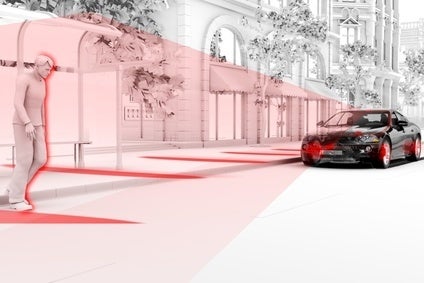
TRW’s public policy expert says rapid advances in vehicle safety allied with Silicon Valley technology are a bit of the “Wild West” as perceptions of transportation alter at startling pace.
A plethora of safety improvements such as lane departure warning, automatic emergency braking and adaptive cruise control systems among many others, is increasingly being married with a suite of lifestyle technologies often embracing non-automotive spheres.

Discover B2B Marketing That Performs
Combine business intelligence and editorial excellence to reach engaged professionals across 36 leading media platforms.
“There is now Silicon Valley, IT and the telecom industries coming into safety, it is changing the safety industry,” Potomac Alliance managing director, Kevin McMahon, who acts for TRW in Washington, told just-auto, on a conference call in the supplier’s global headquarters near Detroit.
“It is a little bit of the Wild West right now. What the vehicle manufacturers choose to promote and put on their vehicles, what the government chooses to regulate on vehicles, remains to be seen, but more change and more rapid change is coming to this industry than ever before.”
The huge range of Advanced Driving Assistance Systems (ADAS) now featuring more and more on vehicles, is also throwing up challenging conundrums for manufacturers and legislators however.
McMahon, who is TRW’s resource in Washington, covering transportation, safety legislative and regulatory affairs, has more than two decades of legislative experience and believes the industry will have some tough choices to make as technologies such as semi-autonomous driving take hold.
“There are huge implications on the liability front that will not be easy to resolve,” said McMahon. “It will have a dramatic impact on the insurance industry and on product liability law and personal injury law.
“Academics are raising questions and there are no easy answers. Until you see vehicles entering the market that have some real semi-autonomous features, that will force parts makers to make some very hard decisions to sort out liability issues.
“I don’t think they are looking forward to tackling those issues. However, it is inescapable.”
Part of the challenge in the US is America sets liability standards at State level, with McMahon conceding 50 different solutions would be “a difficult thing to do,” and creating significant work for policy makers.
“This area is so regulatory,” said McMahon. “You can’t have product finding its way to vehicles that have consequences. They have to be regulated and standards set.
“Our litigation system is a very different environment and it is something manufacturers and suppliers – over the years – with safety products – they have learned to navigate but it is not [an] easy environment to navigate.”






